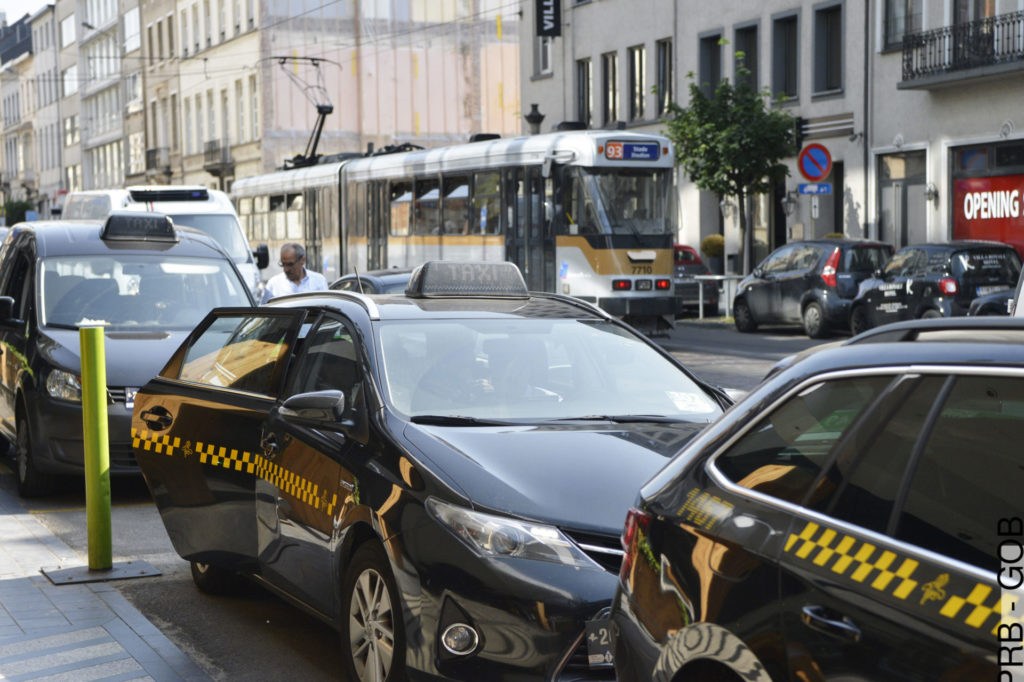Weeks after missing the deadline for promised reform of the taxi sector, Brussels Minister President Rudi Vervoort (PS) held a press conference on Wednesday to reveal his Taxi Plan, on the eve of planned protests from drivers.
Vervoort’s plan calls for equal statutes for both Uber drivers and traditional taxi drivers, minimum rates for rides and the enforcement of quotas, according to Bruzz.
Members of government are to study the plan over the coming weeks.
“It has just been submitted and can now be discussed further with the other cabinets,” Vervoort said during the press lunch in which he at last revealed the plan.
Its regulations were made effective immediately through the use of a preliminary draft degree. The next step involves talks with the taxi sector and government approval, after which the plan will go before parliament.
A spokesperson from Uber told The Brussels Times that Uber had not seen any reform proposals as of Thursday morning, but that they were looking forward to doing so.
Uber drivers will be holding a demonstration this morning in Brussels and the app will be temporarily deactivated during the morning commuting hours, giving anyone looking to book a ride the explanation that drivers are demanding reform of regulations.
Vervoort says the reforms he’s belatedly presenting put the convenience, comfort and service experience of the users first.
They also ban foreign providers, requiring any taxi company operating in Brussels to have its headquarters in Belgium.
Variable fares (like those on Uber and Heetch, which change based on demand and other factors) are still permitted but won’t be allowed to go lower than a minimum rate.
Vervoort says this measure is to protect the traditional taxi sector from being undermined by cheaper offerings on the popular digital platforms.
Related News
- Still no reform: A summer of broken promises for Uber drivers
- Uber to suspend its app in protest over lack of taxi reform
While the status of both Uber and taxi drivers is supposed to be equal, there is a distinction drawn between the two that Vervoort says was inspired by Flemish legislation: traditional taxis, to be known as “standing taxis,” are entitled to parking spaces and allowed to use bus lanes.
Taxis that fall under limousine legislation today, like Uber and Heetch, will be known as “street taxis” and are not allowed to pick up customers outside the app (like customers hailing a cab with their hand from a curb) or wait for riders in designated taxi areas.
They can continue to offer dynamic pricing, so long as the cost of a ride stays above a minimum rate.
The new ordinance also calls for a cap on the number of licensed taxis, which already exists but Vervoort says needs to be changed in order to respond to the proliferation of Uber and Heetch drivers.
There are currently 1,261 traditional taxis in Brussels and 1,196 Uber or Heetch drivers.
Caps for the sector will be decided in later discussions.
The plan also includes regulation for the reservation systems taxis use, requiring that the providers of the system keep a register of drivers, vehicles and routes. They aren’t allowed to demand exclusivity from drivers and are required to be transparent in the costs imposed on them, while also ensuring drivers respect legal driving times.
The Brussels Region says it will also develop its own taxi app, as one of the main criticisms from Uber riders was that traditional taxi services don’t offer the same digital convenience or safety mechanisms.
Companies that do not comply with the new taxi plan risk being banned from operating in Brussels.
Vervoort says that there is overall agreement within the government about the plan, but that details still need to be negotiated.

